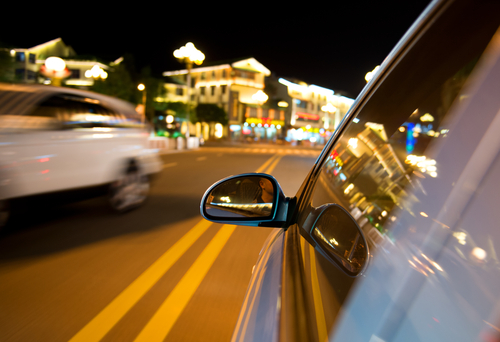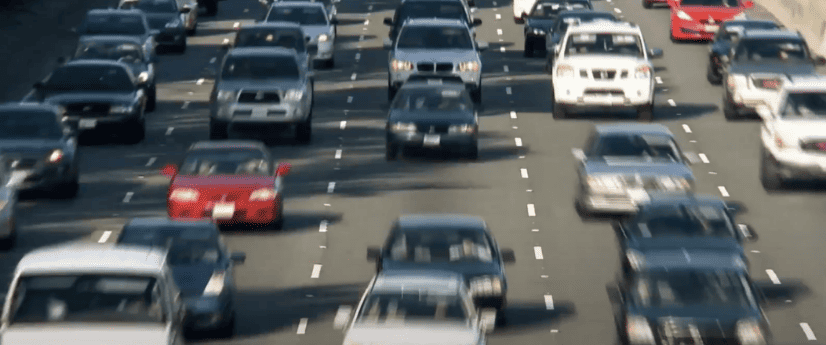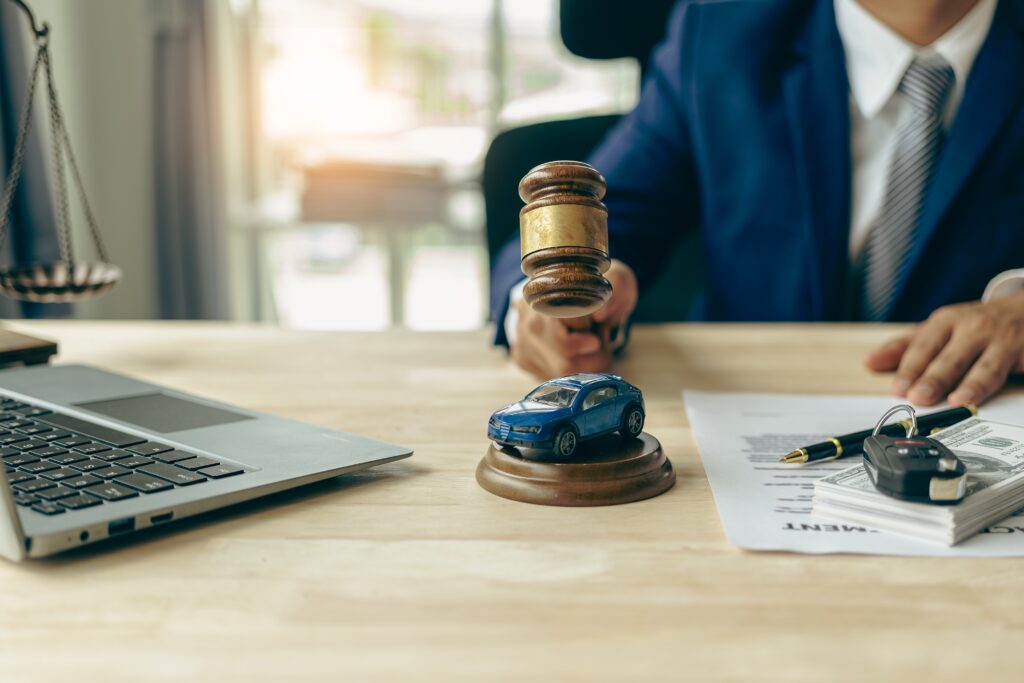The obsession with speed has become ingrained in our culture, extending beyond just daily activities to our approach behind the wheel. This fixation on speed while driving has led to a rise in road accidents, significantly impacting lives across Florida. It's evident that this need for speed often eclipses the importance of safety on our roads.
The allure of reaching our destinations swiftly has unfortunately come at the cost of disregarding traffic regulations and risking lives. Understanding the repercussions, both legal and personal, is crucial in curbing this dangerous trend and ensuring the safety of all motorists on Florida's highways and streets.
If people understand that speeding is dangerous and agree that no one should do it, why do they think it's ok to speed when they're behind the wheel? And what happens if you are involved in a car accident caused by speeding? A Brooksville car accident attorney can help in these situations.
Speed Limit Law Origins
In 1901, Connecticut became the first U.S. state to enact a motor vehicle speed limit law, setting maximum speeds of 12 miles per hour in cities and 15 mph on country roads. The primary goal was to protect pedestrians and horses, as motor vehicles began sharing roads with traditional forms of transport.
As automobile use exploded in the early 20th century, so did public concern over traffic safety. By the 1930s, most U.S. states had adopted their own speed regulations, with only a dozen still lagging behind. These early laws laid the foundation for today's standardized speed limits and enforcement systems.
Why Do People Go Over the Speed Limits?
Speeding is a significant problem in communities across the United States. It is the most common traffic offense and also claims the lives of almost 10,000 people each year, according to the National Highway Traffic Safety Administration (NHTSA). In addition to putting other motorists at risk, drivers who ignore the posted speed limits are also much more likely to injure or kill cyclists or pedestrians as well.
According to a study conducted by The Zebra, nine in ten drivers admitted to speeding, even though 82 percent of respondents said that the behavior is dangerous. Another 35 percent of respondents said speeding is never acceptable.
Many Americans disregard speed limits simply because they feel free to do so. Studies have shown that most drivers will only respect the speed limit if they think there is a danger of being caught.
Because law enforcement's efforts have been ineffective at stopping this behavior, Americans tend to speed when they believe they won't be pulled over. Most drivers will reduce their speed when driving past police cars but immediately increase their speed when the perceived risk disappears. Some drivers even use apps to identify possible speed traps.
Many American drivers don't see the harm in going 5 or 10 miles per hour over the speed limit. But exceeding the speed limit, even by just a few miles per hour, can be dangerous because speed limits often reflect the safest speed.
It isn't just speeding that's dangerous. Some motorists obey the speed limit, but others disregard it. When motorists travel at vastly different speeds on the same stretch of road, the potential for accidents and unsafe lane changes increase.
Does A Higher Speed Limit Raise Speeds?
Many people perceive the speed limit as the speed minimum. Typically, increases in the speed limit simply align with how fast motorists currently drive. Therefore, higher speed limits often result in motorists driving above these limits.
Who Speeds The Most?
According to data compiled by the AAA Foundation for Traffic Safety, motorists of all ages speed, but teenagers are far more likely to cause an accident than adults in their 30s and 40s. Teens speed for various reasons, but inexperience is one of the most significant. If teens don't receive proper driver training, they may make dangerous decisions that endanger themselves and others on the road.
Common Reasons Why People Speed
Understanding why drivers speed can help raise awareness and potentially reduce speeding-related accidents. Here are the most common reasons people break the speed limit:
1. Running Late
Whether it's a meeting, an appointment, or the school drop-off, many drivers speed simply because they're in a rush. The pressure to make up for lost time is a major factor in speeding behavior, even though it only saves a few minutes—and increases crash risk significantly.
2. Traffic Flow
Drivers often match the pace of surrounding traffic, even when it's over the posted speed limit. The desire to "keep up" with other vehicles or avoid being tailgated can lead to speeding, especially on highways.
3. Overconfidence Behind the Wheel
Some drivers believe they have superior skills and can handle high speeds better than others. This overconfidence often leads to risky driving behaviors and a false sense of control—factors that contribute to many high-speed collisions.
4. Emotional Triggers
Speeding can be a reaction to emotional states like anger, stress, or frustration. Known as “emotional driving,” this behavior is especially common during road rage incidents or after receiving bad news.
5. Thrill-Seeking and Enjoyment
For some, speeding is about excitement. The adrenaline rush that comes with driving fast can be addictive. These drivers may not be in a hurry—they simply enjoy the sensation of speed.
6. Empty Roads and Late-Night Driving
Drivers are more likely to speed when roads are empty, particularly at night. Without the presence of traffic or law enforcement, some see it as a chance to “let loose” behind the wheel.
7. Inconsistent Speed Limits or Signage
In areas with poor signage or frequent changes in speed limits, drivers may speed unintentionally. Others may ignore reduced limits in construction zones or school areas, especially if enforcement seems unlikely.
8. Driving-under-influence (DUI)
Alcohol and certain drugs can dull a person’s perception of speed and distance, making them unaware of how fast they're actually going. This disconnection from reality increases the risk of high-speed collisions, especially in areas with changing traffic conditions, pedestrians, or sharp curves.
Dangers of Speeding
Driving over the posted speed limit or too fast for conditions increases the risk of losing control, reduces reaction time, and leads to traffic fatalities. Below are the most critical dangers associated with speeding:
1. Increased Risk of Losing Control
Speeding reduces the driver’s ability to safely steer around curves, obstacles, or unexpected hazards. The faster a vehicle is moving, the harder it becomes to maintain control—especially in bad weather or heavy traffic.
2. Longer Stopping Distances
High speeds mean longer braking times. A speeding driver may not be able to stop in time to avoid hitting a vehicle, pedestrian, or object. This is one of the most common causes of rear-end collisions.
3. Greater Crash Impact
The force of impact increases exponentially with speed. This means that even a minor mistake at high speed can lead to catastrophic injuries or fatalities. Speeding not only raises the chances of an accident—it increases the severity of the outcome.
4. Reduced Effectiveness of Safety Equipment
Seat belts, airbags, and crumple zones are designed to protect occupants at legal speed limits. In high-speed fatal crashes, these safety features may be less effective or completely overwhelmed by the force of impact.
5. Less Reaction Time
When a driver is speeding, they have less time to perceive danger and react appropriately. Whether it’s a child darting into the road or sudden traffic congestion, high speeds drastically cut down response time.
6. Higher Likelihood of Fatalities
According to the National Highway Traffic Safety Administration (NHTSA), speeding was a factor in 29% of all traffic fatalities in the U.S. in 2022. It remains one of the leading contributors to deadly crashes nationwide.The risks of speeding affect not only the driver but everyone on the road. If you or someone you love was injured in a speeding accident, you may be entitled to compensation for medical bills, lost income, and other damages. Contact our personal injury attorneys today to explore your legal options.
Legal Implications of Speeding
Drivers caught exceeding posted speed limits may face a range of legal consequences that can impact their driving record, finances, and even their freedom in serious cases.
1. Speeding Tickets and Fines
The most immediate consequence of speeding is a speeding ticket. Fines vary by state but can range from $50 to several hundred dollars, depending on how far over the limit the driver was going. Some states also add surcharges or court fees on top of the base fine.
2. Points on Your Driver’s License
Many states use a point system to track traffic violations. Accumulating too many points can lead to increased insurance premiums, license suspension, or mandatory driving courses. For example, speeding 15+ mph over the limit may add 3 or more points to your record.
3. Increased Insurance Premiums
Speeding violations are a red flag to insurance companies. A single ticket can cause your auto insurance rates to increase significantly, especially if it’s paired with other offenses.
4. Criminal Charges for Reckless Driving
In more serious cases—such as extreme speeding, street racing, or causing an accident—drivers may be charged with reckless driving, a misdemeanor or even felony offense. This can lead to higher fines, jail time, and a permanent criminal record.
5. License Suspension or Revocation
Offenders caught speeding in school zones, construction areas, or while under the influence may face license suspension or revocation. This can affect your ability to commute, work, and fulfill daily responsibilities.
6. Civil Liability After a Crash
If a speeding driver causes an accident, they may be held civilly liable for injuries, property damage, and wrongful death claims. Victims can pursue compensation through a personal injury lawsuit—even if the driver wasn’t criminally charged.
Can you Recover Compensation if You Were in a Speeding Related Accident?
You may be entitled to financial compensation if you were injured in a crash caused by a speeding driver. Speeding is typically considered negligence, which is a legal basis for holding someone liable in a personal injury claim.
To build a strong claim, your attorney will help you prove:
- The other driver was negligent: speeding violates traffic laws and is often viewed as automatic negligence. Police reports, dashcam footage, citations, or witness statements can support your case.
- You suffered damages: these can include:
- Medical bills
- Lost wages or future income
- Vehicle repair or replacement costs
- Pain and suffering
- Emotional distress or trauma
The speeding directly caused the accident and your injuries: for example, if a speeding driver rear-ends your vehicle, that excessive speed is a key factor in liability.
Injured In A Car Accident? Holliday Karatinos' Accident Lawyers in Florida Can Help
Ignoring the posted speed limit is negligent driving, plain and simple. If you were injured in a car accident caused by a speeding driver or a loved one was a tragic victim of a car accident death from speeding, the Brooksville personal injury lawyers at Holliday Karatinos Law Firm, PLLC can help. Our accident lawyers in Florida will be ready to help you hold speeding drivers accountable for the harm they've caused you. Contact us by phone or online and speak with one of our car accident attorneys in Lutz during a free consultation. We'll be ready to discuss your rights and legal options.
FAQs
Is speeding always considered negligence in a car accident?
Speeding is generally considered negligence in a car accident because it violates traffic laws and puts others at risk. In personal injury claims, proving that a driver was speeding often helps establish fault. However, the full context of the crash—such as road conditions, visibility, or actions by other drivers—will also be considered when determining liability.
What happens if both drivers were speeding during a crash?
If both drivers were speeding during a crash, fault may be shared under comparative negligence laws. This means each driver’s percentage of fault is evaluated, and any compensation awarded may be reduced based on that percentage. For example, if you’re found to be 20% at fault, your damages could be reduced by 20%.
How much can you recover in a speeding-related accident lawsuit?
The amount you can recover in a speeding-related accident lawsuit depends on the severity of your injuries and losses. Victims may be entitled to compensation for:
- Medical expenses
- Lost income and reduced earning capacity
- Pain and suffering
- Property damage
- Emotional distress
Severe or permanent injuries often lead to higher settlements. An experienced personal injury lawyer can estimate the value of your case based on its specifics.













